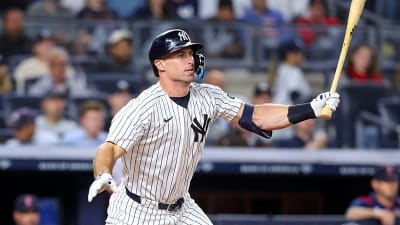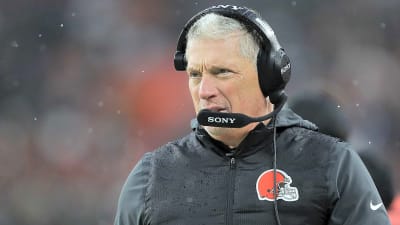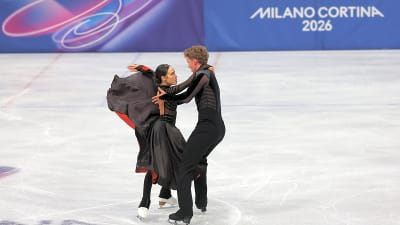
In an era where technology and copyright law are in constant collision, few companies are watched as closely as Nintendo. Known for its aggressive defense of intellectual property, the video game giant recently found itself at the center of a different kind of controversy: rumors that it was actively lobbying the Japanese government to impose restrictions on generative artificial intelligence.
Nintendo moved swiftly to debunk these claims, issuing a clear denial that has since been amplified by an apology from the politician who initiated the rumor. This incident, while quickly resolved, sheds light on the complex and often tense relationship between creative industries and the rapidly advancing world of AI. This article will explore the Nintendo generative AI lobbying rumors, the company’s official statement, and the broader implications for the future of intellectual property.
Nintendo & Generative AI: How the Rumors Started
The speculation began with a social media post from Satoshi Asano, a member of Japan’s House of Representatives. In his post, the lawmaker suggested that Nintendo was engaging in lobbying efforts aimed at curbing the use and development of generative AI. Given Nintendo’s well-documented history of litigating against copyright infringement, the claim seemed plausible to many online observers. The rumor quickly gained traction, spreading across social media platforms and gaming forums.
The idea of Nintendo taking a proactive political stance against AI resonated with many who have followed the company’s legal battles. From taking down fan games to suing emulator developers and, more recently, launching a patent lawsuit against Palworld developer Pocketpair, Nintendo has cultivated an image as a fierce guardian of its characters and worlds. The notion that it would take this fight to the political arena to address the potential threat of generative AI seemed like a logical next step in its long-standing strategy.
However, the claim was unsubstantiated. It appears the politician made the statement without verifying the facts, leading to a wave of misinformation that prompted Nintendo to make a rare public clarification on its corporate social media accounts.
Nintendo’s Swift and Clear Denial
In a direct response to the growing online discussion, Nintendo issued a statement on its official corporate X (formerly Twitter) account. The message was unequivocal, leaving no room for interpretation.
“Contrary to recent discussions on the internet, Nintendo has not had any contact with the Japanese government about generative AI,” the company stated.
This firm denial immediately shut down the speculation. Shortly after Nintendo’s post, Mr. Asano deleted his original message and issued a public apology for spreading unverified information.
However, Nintendo’s statement did not end there. The company took the opportunity to reiterate its unwavering commitment to protecting its intellectual property, adding a crucial second part to its message: “Whether generative AI is involved or not, we will continue to take necessary actions against infringement of our intellectual property rights.”
This addendum is significant. While Nintendo denied any political lobbying, it made its position on AI-driven infringement crystal clear. The company is signaling that it views the unauthorized use of its IP by AI tools with the same seriousness as any other form of piracy or copyright violation. Its battlefield is the courtroom, not the legislature—at least for now.
The Broader Context: AI and Copyright Collide
The Nintendo generative AI lobbying rumors did not emerge in a vacuum. They surfaced at a time when the entire entertainment industry is grappling with the legal and ethical implications of generative AI. Tools that can create images, text, and even video from simple prompts are becoming increasingly sophisticated, and they are often trained on vast datasets of existing, copyrighted material.
This has led to several high-profile legal challenges. Authors, artists, and media companies have filed lawsuits against AI developers like OpenAI, alleging that their work was used without permission to train these powerful models. A recent example that directly involves Nintendo’s characters is OpenAI’s Sora 2 video generation tool, which reportedly produced clips featuring familiar Nintendo figures based on user prompts.
In response to these concerns, AI developers are beginning to take steps to address copyright issues. OpenAI has acknowledged the user-generated content and has stated its intention to provide copyright holders with “more granular control” over how their intellectual property is used within its tools. This would allow companies like Nintendo to opt out or specify how their characters can be generated, giving them a new way to defend their digital assets.
Nintendo’s statement fits perfectly into this ongoing debate. By clarifying that it will take action against any infringement, “whether generative AI is involved or not,” the company is putting AI developers and users on notice. It is asserting that its existing legal framework for protecting IP is sufficient to cover violations originating from AI tools.
Why This Matters for the Future
Nintendo’s public denial and reaffirmation of its stance have several important implications for the gaming industry and beyond.
1. A Legal, Not Political, Approach
By denying the lobbying rumors, Nintendo has clarified that its current strategy is to use existing copyright law to combat infringement. This means it will likely continue to rely on cease-and-desist letters and lawsuits rather than pushing for new legislation specifically targeting AI. This legal-first approach is consistent with the company’s past actions and suggests it believes current laws are robust enough to handle the threat.
2. Setting a Precedent for Other Rights Holders
As one of the world’s most recognizable brands, Nintendo’s actions are closely watched by other companies in the creative industries. Its firm stance sends a message that intellectual property rights will be defended, regardless of the technology used to infringe upon them. This could embolden other game developers, movie studios, and publishers to take similar legal action against unauthorized use of their content in AI-generated media.
3. The Ongoing Tension with Fan Creation
While this incident was about AI, it touches on the long-standing tension between Nintendo and its fan base. The company has often been criticized for what some see as an overly aggressive approach to fan-made projects and content. This latest statement, while legally sound, does little to bridge that divide. It reinforces the image of Nintendo as a company that prioritizes absolute control over its IP, even when it comes to new and emerging technologies that could be used for creative expression.
Conclusion: A Clear Stance in an Unclear Future
The rumors of Nintendo lobbying against generative AI may have been false, but the incident successfully brought the company’s position on the matter into sharp focus. Nintendo has made it clear that it sees AI-driven copyright infringement as just another form of piracy and will not hesitate to use its formidable legal resources to combat it.
As generative AI continues to evolve, the legal and ethical battles surrounding it will only intensify. While Nintendo has chosen a path of legal enforcement over political lobbying for now, its actions will continue to be a major factor in shaping the rules of engagement in this new technological frontier. The company has drawn its line in the sand, and the entire creative industry is watching to see what happens next.
More must-reads:
- Spurs' Stephon Castle makes NBA history in win over Mavericks
- Tom Brady reverses course on Super Bowl comments after backlash
- The 'Super Bowl halftime show artists' quiz
Breaking News
Trending News
Customize Your Newsletter
 +
+
Get the latest news and rumors, customized to your favorite sports and teams. Emailed daily. Always free!








